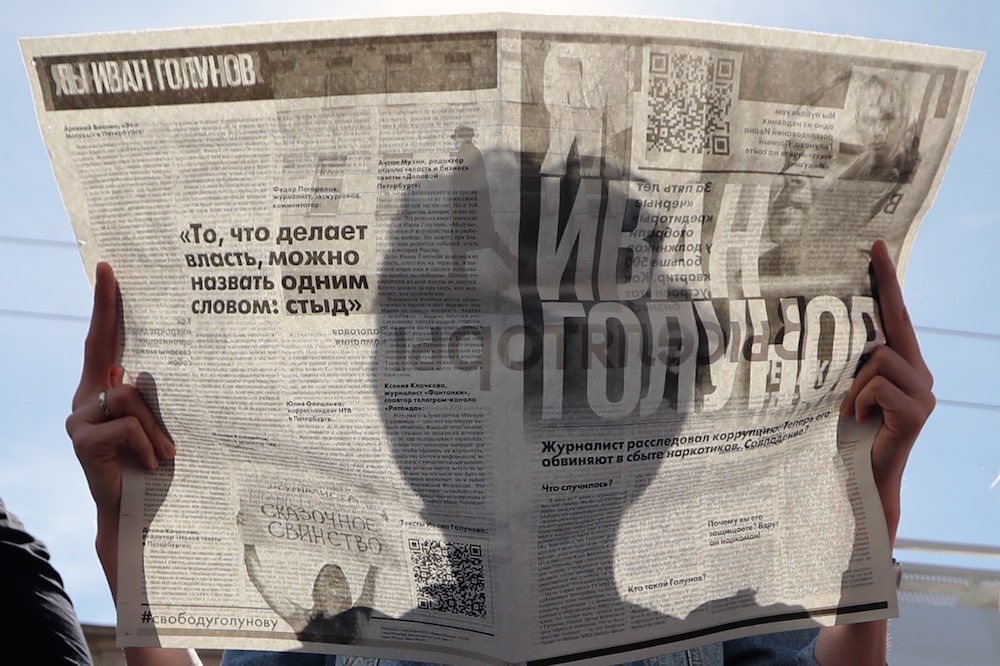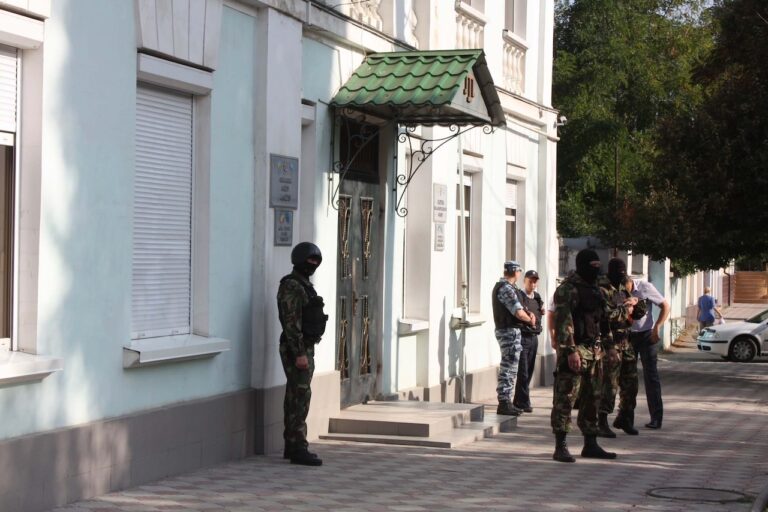Since 2017, Russian authorities have labelled media outlets that receive foreign funding and individual journalists who worked with them as “foreign agents”. The list includes Voice of America, Radio Free Europe/Radio Liberty, the Czech Republic-based outlet Medium Orient, and five individual RFE/RL journalists.
This statement was originally published on cpj.org on 26 April 2021.
Russian authorities should reverse their decision to designate independent media outlets Meduza and PASMI as foreign agents, and should repeal or reform the country’s foreign agent law, the Committee to Protect Journalists said today.
On April 23, Russia’s Justice Ministry added the independent Latvia-based news website Meduza to its list of “foreign agents,” thereby imposing new legal requirements on the outlet for it to continue operating in Russia, according to a statement by Meduza, news reports, and the outlet’s chief editor Ivan Kolpakov, who spoke with CPJ via messaging app.
On the same day, the ministry also added PASMI, a Russia-based news outlet that covers alleged corruption, to that list, according to those reports. The outlet’s CEO and acting chief editor Dmitry Verbitsky told local outlet MBKh Media that PASMI did not receive any foreign funding and speculated that its addition to the list was “a mistake.”
“Russian authorities should cease harassing Meduza, PASMI, and all other independent outlets that the government is seeking to punish for being so-called ‘foreign agents,’” said Gulnoza Said, CPJ’s Europe and Central Asia program coordinator. “Russia’s foreign agents law, if not repealed or fundamentally reformed immediately, threatens to eliminate the few remaining independent voices in the country.”
According to the foreign agents law, media organizations and individuals receiving foreign funding can be required to have a legal representative in Russia, provide the government with quarterly expense reports and semi-annual reports on their activities, undergo annual audits, and face other requirements. The law also requires “foreign agents” to note such status whenever they produce news or are mentioned in news articles.
In cases of non-compliance, people working for “foreign agent” outlets can face up to two years in prison, according to that law.
Meduza issued a statement on April 23 saying that the outlet disagreed with the decision and would challenge it in court. In the meantime, the outlet has started adding the required disclosures to all its publications, according to CPJ’s review of its recent articles.
Verbitsky issued a statement saying that PASMI’s inclusion on the foreign agents list was baseless, because the outlet is based in Russia and is not financed by any foreign entities; Verbitsky also said that the outlet will challenge the decision in court. PASMI has also added the disclosures to its publications, according to CPJ’s review of its website.
PASMI did not respond on the record to calls or emails from CPJ.
“Recognition of Meduza as a foreign agent deprives us of the opportunity to fully engage in journalism in Russia (because this is a discriminatory status), and destroys our business (because advertisers will run away from us),” Kolpakov told CPJ. “In addition, all people who collaborate with Meduza could be fined or prosecuted . . . All in all, this is literally a strangulation of our outlet.”
Meduza has recently covered protests in support of Russian opposition leader Alexei Navalny, and the arrests and detentions of journalists throughout the country. PASMI (an acronym for The First Anti-Corruption Mass Media) has recently covered alleged corruption by high-ranking Russian government officials.
Since 2017, Russian authorities have labeled media outlets that received foreign funding and individual journalists who worked with them as “foreign agents,” adding them to a list that includes the U.S. Congress-funded broadcasters Voice of America and Radio Free Europe/Radio Liberty, the Czech Republic-based outlet Medium Orient, and five individual RFE/RL journalists. The list now includes 19 entries, following the addition of Meduza and PASMI.
Also since 2017, the United States has required a number of foreign-funded news outlets, including the Russian-funded outlet RT, to register under the U.S. Foreign Agent Registration Act, as CPJ has documented.
CPJ emailed Russian media regulator Roskomnadzor and the Ministry of Justice for comment, but did not receive any responses.



